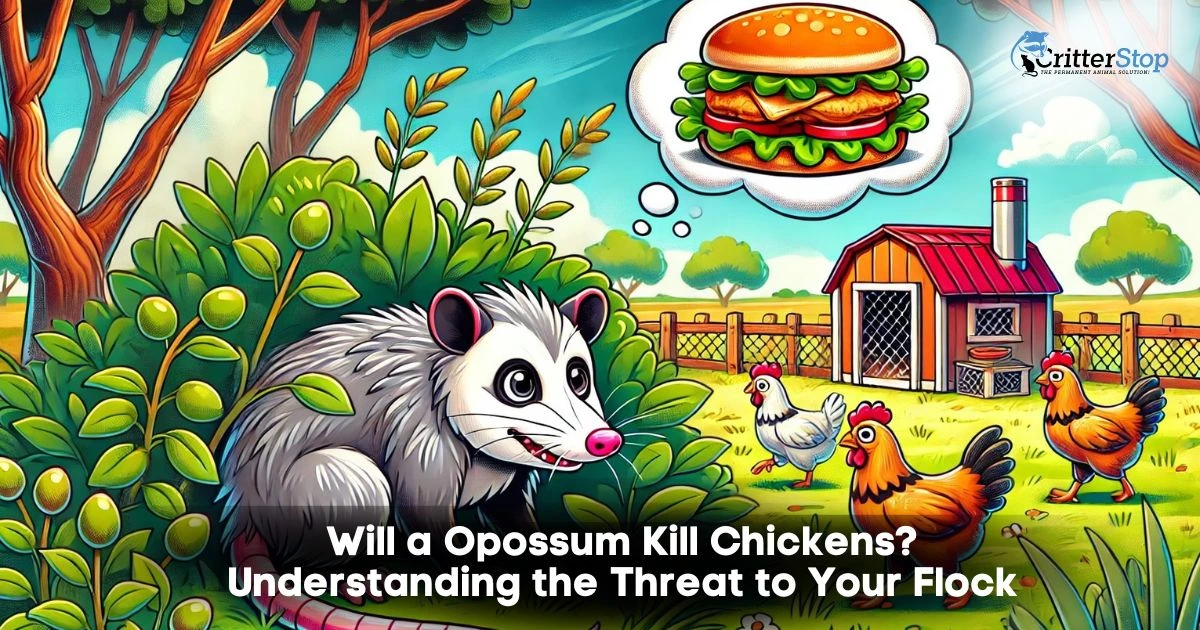
Opossums are often misunderstood creatures when it comes to their interactions with chickens. Many people wonder, will a opossum kill chickens? The answer is not as straightforward as it may seem. While opossums are opportunistic feeders and may eat poultry, they are not typically aggressive toward healthy adult chickens.
In general, opossums are scavengers that prefer to eat insects, fruits, and small rodents. They are unlikely to hunt or kill chickens unless they are actively vulnerable. That said, chicken owners should remain cautious, as opossums can threaten young chicks and eggs if given the opportunity.
Understanding opossums' behavior to chickens can help develop effective management strategies to protect these birds. Keeping chickens securely housed at night and monitoring for signs of opossum activity can minimize risks associated with these nocturnal visitors.
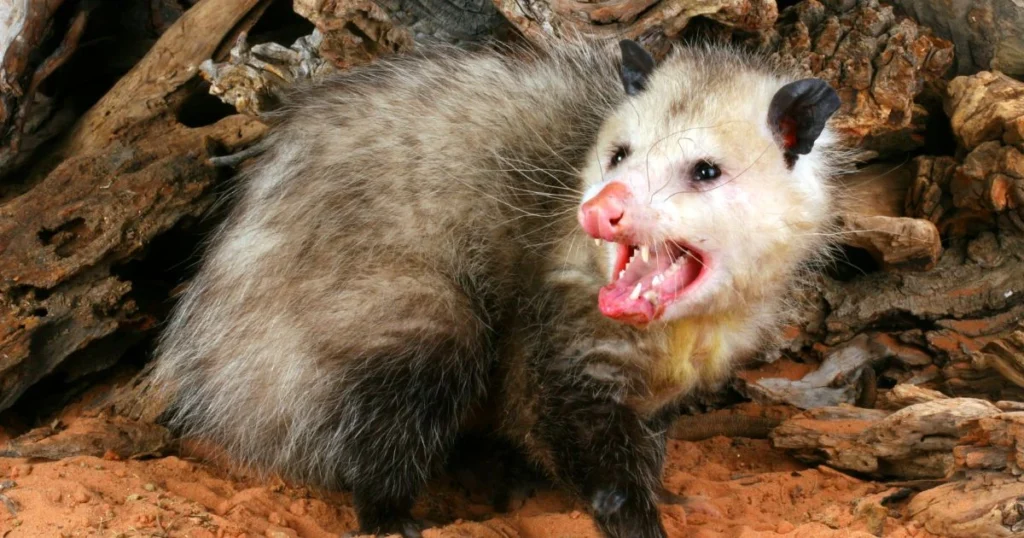
Opossums exhibit specific behaviors and patterns that influence their interactions with other animals and food sources. Understanding these behaviors is crucial for assessing their impact on chickens and other vulnerable animals.
Opossums are opportunistic feeders with a diverse diet. They consume fruits, insects, small mammals, and even carrion. Their foraging habits dictate that they may scavenge around chicken coops if food is available.
Opossums have a relatively low hunting success rate compared to predators. They rarely attack healthy adult chickens. Instead, they may target unprotected eggs or weak chicks. This tendency to feed on what is accessible makes it important for chicken owners to secure their coops effectively.
Opossums possess unique social behaviors when interacting with other species. They are generally non-aggressive and prefer to avoid confrontations. They often play dead as a defense mechanism against threats.
Opossums do not actively seek out chickens as prey. However, they may indirectly pose a risk by consuming eggs or scavenging dead chicks. Enhancing coop security and management practices can reduce the likelihood of negative encounters with opossums, protecting both the chickens and the surrounding environment.
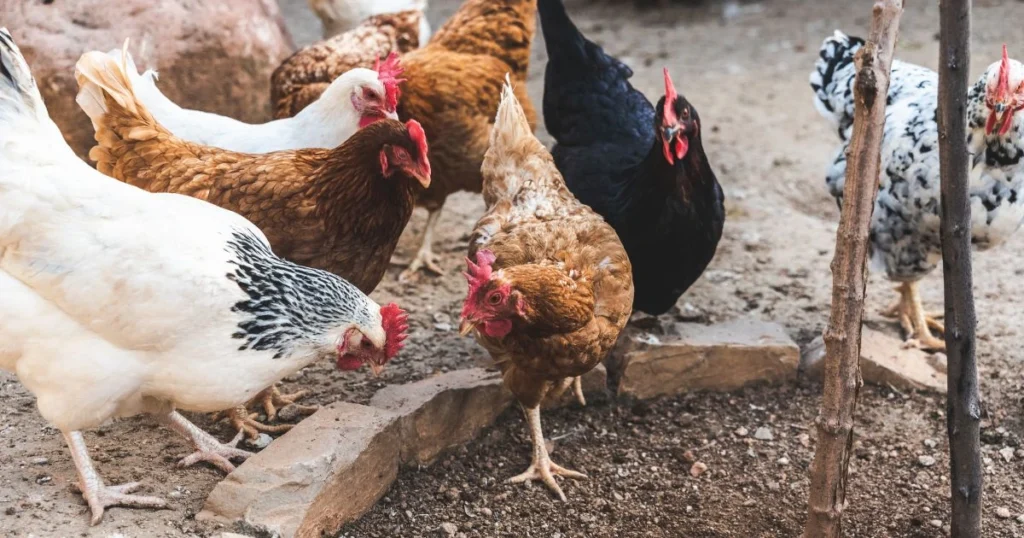
Opossums can occasionally threaten chickens, but understanding their behavior and entry methods is crucial for effective prevention. Recognizing signs of an opossum's presence helps safeguard poultry.
Opossums are excellent climbers and can easily access a chicken coop through various means. They often exploit gaps or weaknesses in fencing, such as loose boards or low spots.
They might also squeeze through any openings larger than a few inches. A damaged door or window is a common entry point.
To enhance security, consider reinforcing doors and windows with sturdy materials. Additionally, employing hardware cloth on openings can prevent opossums from entering.
Identifying opossum activity in a henhouse is essential for prevention. Common signs include tracks, droppings, and disturbed bedding.
Opossum tracks are characterized by five toes on both front and hind feet, leaving distinct prints on soft ground. Their droppings resemble small, dark pellets and may contain food remnants, such as feathers or seeds.
When opossums are most active at night, unusual noises or disturbances around the coop may indicate their presence. Regular checks for these signs can help poultry owners proactively protect their chickens.
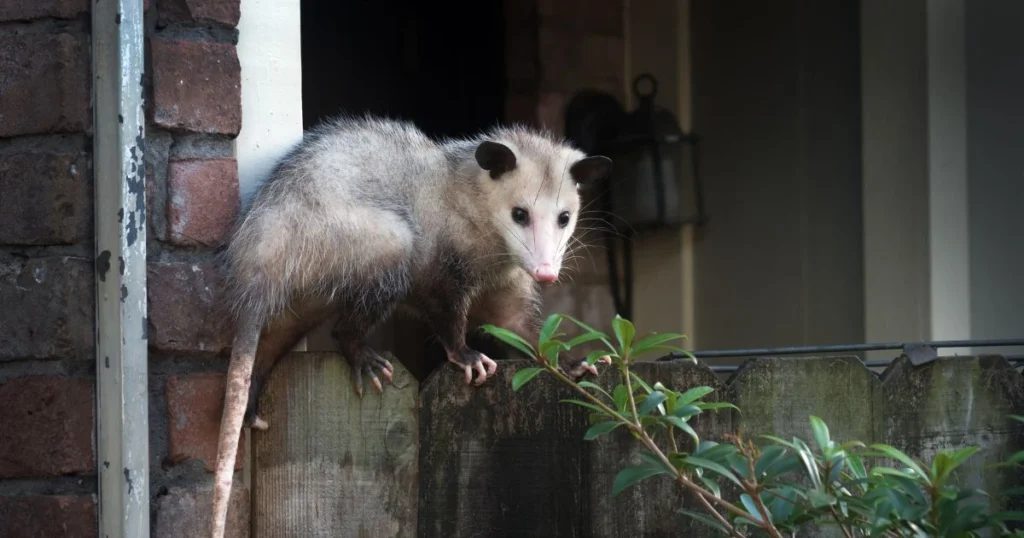
Keeping chickens safe from opossum predation involves implementing effective protective measures and ensuring safe coop practices. Poultry owners can significantly reduce the risk of attacks by addressing these areas.
Various strategies can be employed to protect chickens from opossums. Fencing is crucial; a sturdy, buried wire fence at least 2 feet deep prevents opossums from digging underneath. Additionally, fencing with small openings (no larger than 1 inch) can deter entry.
Motion-activated lights are helpful as they disrupt nocturnal activity. Installing these lights near the coop can scare off opossums when they approach. It's also advisable to secure food sources by storing feed in airtight, heavy containers to minimize attraction.
Regularly inspecting the surroundings and addressing potential shelter spots can reduce their presence. This vigilance creates a less hospitable environment for opossums.
Creating a safe coop is essential in preventing opossum attacks. A well-designed coop should have strong locks and latches to keep the chickens secure at night. Ensure that all openings, including vents, are covered with hardware cloth instead of chicken wire, providing better protection against predators.
Raising the coop off the ground can deter opportunistic foragers and limit access to opossums and other ground predators. Keeping the area around the coop tidy and free from clutter and avoiding leaving food scraps outside can further reduce opossums' attraction.
Monitoring for signs of opossum activity, such as tracks or droppings, aids in taking timely action if a potential threat arises.
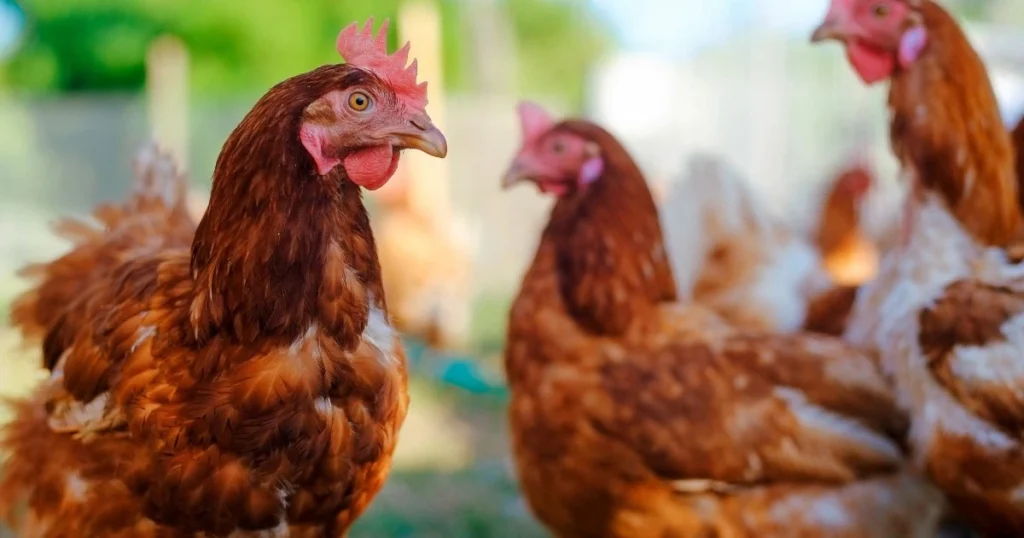
Controlling opossums requires effective techniques that focus on humane methods of removal and adherence to legal guidelines. Understanding these practices can help prevent opossums from harming chickens and causing distress.
Humane trapping is an effective way to control opossum populations. Cage traps are commonly used. They should be at least 10x12x32 inches and placed where opossums are frequently seen.
Bait the trap with foods opossums find appealing, such as fruits, vegetables, or pet food. Checking the traps regularly is crucial to ensure captured animals do not suffer.
Once trapped, release the opossum in a suitable location at least 5 miles away from the capture site. Local wildlife regulations may dictate acceptable release areas, so it's important to research and follow these guidelines.
In many regions, trapping, relocating, or killing opossums is regulated. Familiarity with state and local laws is essential before attempting any control measures.
Many states consider opossums a protected species, which restricts how, when, and where they can be captured or removed. Fines may apply for illegal actions.
Consulting with a local wildlife service can provide valuable guidance. They can assist in determining the best practices for humane removal and ensure compliance with all legal requirements, especially when dealing with potential threats to chickens.
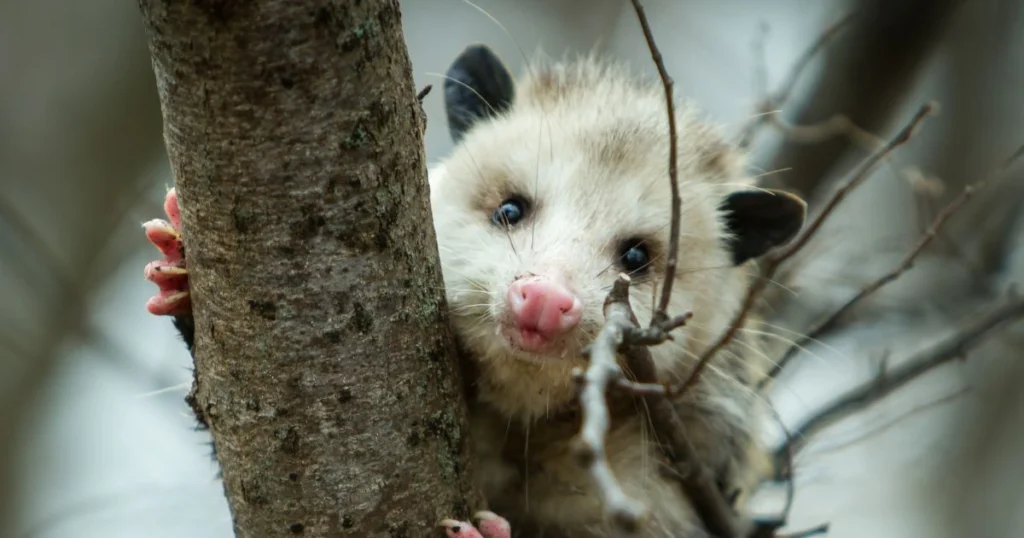
Understanding the other factors that can threaten chickens is essential for effective protection. Various predators and common misconceptions about opossums can influence how one approaches wildlife management.
Numerous animals may pose a threat to chickens. Common predators include raccoons, foxes, hawks, and weasels. Each has unique behaviors and attacking methods.
Raccoons are known for their dexterous hands, which allow them to open chicken coops. They can also be quite stealthy at night. Foxes primarily strike during dusk or dawn and often target free-ranging chickens. Hawks can swoop down from the sky, especially targeting smaller or young birds. Weasels, although smaller, are adept at accessing tight spaces, making them elusive threats.
Identifying these animals will help determine the appropriate control measures. Watching for footprints, droppings, or disturbances around the coop can offer vital clues to the predator's identity.
Opossums often receive a bad rap when it comes to chicken predation. Many people believe that these animals are responsible for chicken deaths due to their nocturnal habits.
In reality, opossums are scavengers rather than hunters. Their diet typically consists of insects, fruits, and carrion. They might occasionally raid a coop but are less likely to kill healthy chickens. Most of the time, if they enter a coop, they will consume eggs rather than attack live birds.
Education about opossum behavior can help prevent unwarranted fears. Effective strategies can focus on identifying the real threats while implementing humane solutions. For assistance with wildlife concerns, calling Critter Stop at (214) 234-2616 can be beneficial. Critter Stop has a fantastic reputation and online customer reviews because it provides high-quality work and great customer service.
Understanding the interactions between opossums and chickens can help poultry owners make informed decisions about coop management. The following questions address specific concerns related to opossums and their potential impact on chickens.
Opossums are generally not aggressive animals. They typically do not kill chickens but may attack weak or injured birds if they find them in the coop. Their primary interest often lies in accessing eggs rather than harming adult chickens.
To prevent opossums from accessing chickens, homeowners should secure the coop with strong locks and barriers. Reducing food sources around the property, such as pet food or garbage, can also deter these animals from entering areas where chickens are kept.
Opossums are more likely to eat eggs than to attack adult chickens. They will seek out eggs as a food source, but healthy chickens can usually fend off an opossum if properly protected. Ensuring that nests are secured can minimize this risk.
The primary risks include the potential for egg predation and the chance of disease transmission, as opossums can carry parasites. It is advisable to keep a safe distance between chickens and wild opossums.
Opossums do not typically kill chickens out of territorial aggression. Their actions are driven more by food availability. If they feel threatened, they might defend themselves but are not known to target chickens aggressively.
In a free-range environment, supervision is important. Employing fencing and motion-activated lights can deter opossums. Regular checks for signs of predation and maintaining a clean area can also help protect the flock.
Signs of an opossum attack may include disturbed nesting areas and missing eggs. Feathers around the coop can also indicate a struggle. Observing the behavior of remaining chickens can provide additional context; stressed or agitated birds may suggest a recent disturbance.
Incidents vary by location. Urban areas may see few issues due to less wildlife interaction. In contrast, rural settings can experience more frequent encounters, especially where chickens are more exposed to natural wildlife habitats.
Visit our Critter Library and learn more about our furry friends